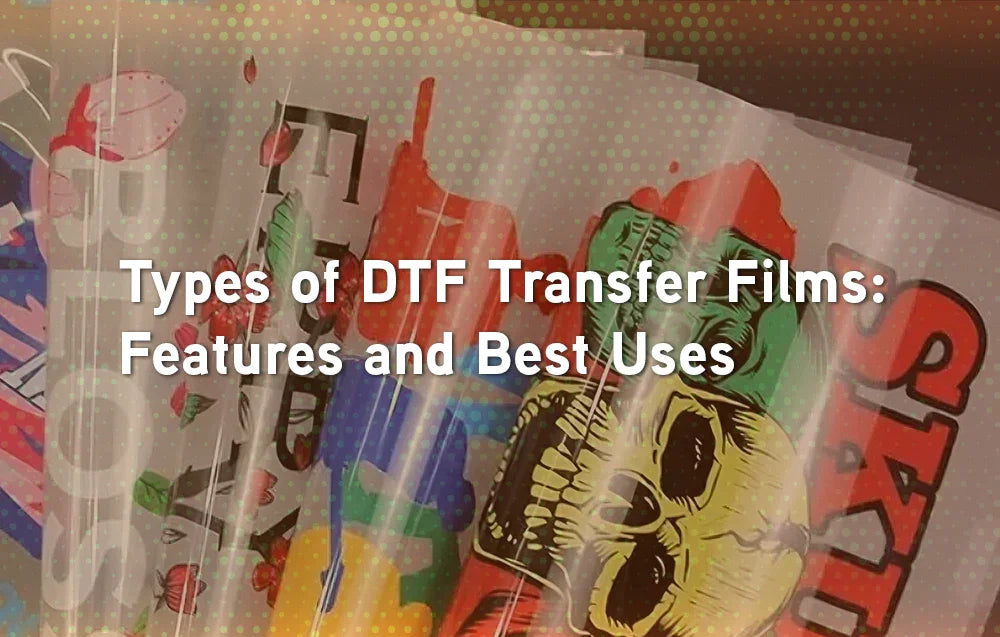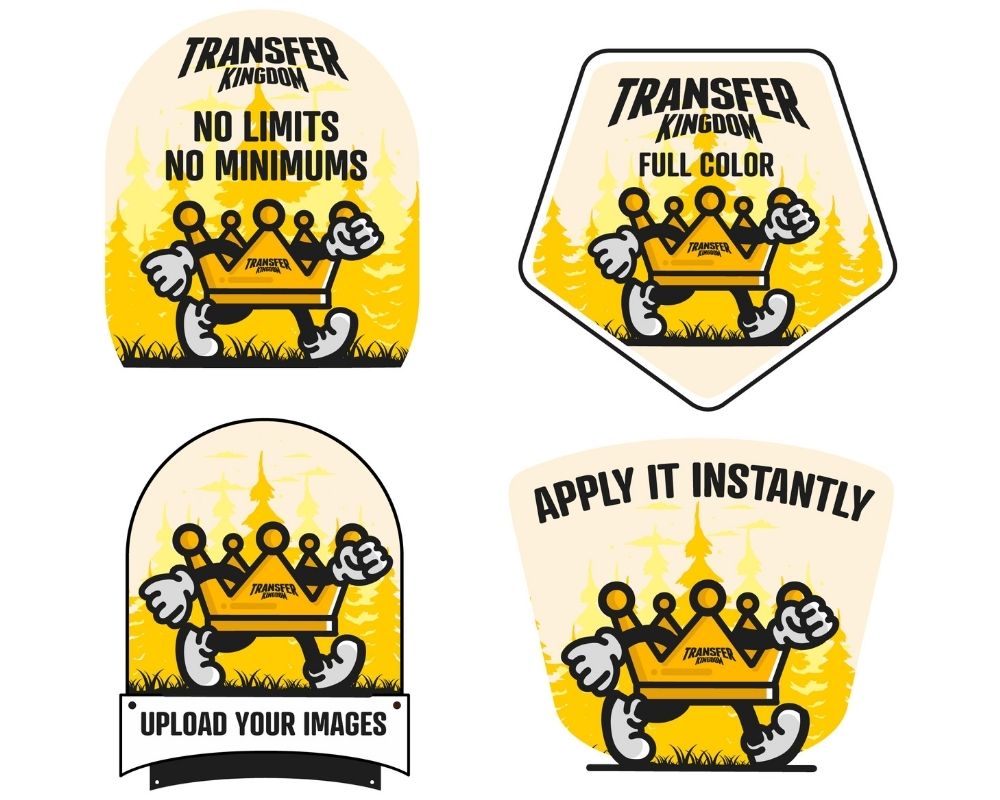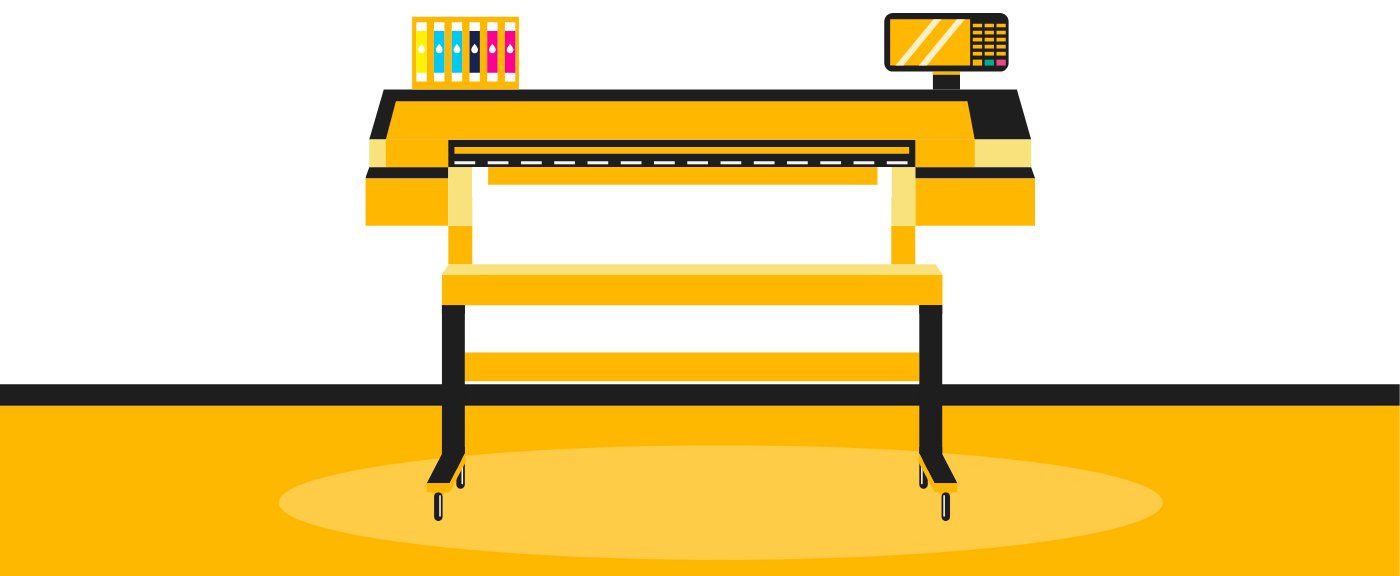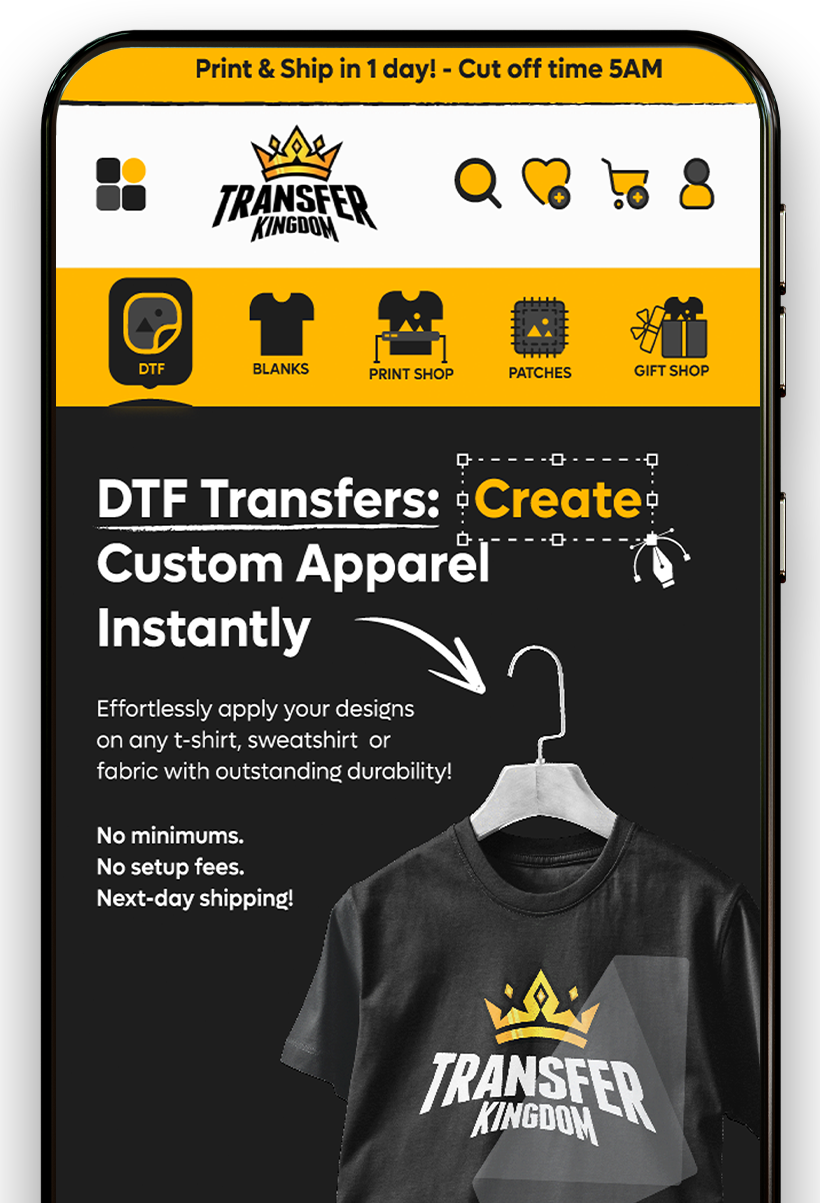Types of DTF Transfer Films: Features and Best Uses

Not all DTF transfers are created equal. The type of transfer film you choose directly affects the print’s finish, durability, and ease of application. From hot peel to cold peel films, each option has unique benefits that suit different apparel projects. In this guide, we’ll break down the main types of DTF transfer films, highlight their features, and explain the best uses for each so you can make the right choice for your custom apparel.
Why Film Type Matters in DTF Printing
The transfer film acts as the carrier sheet that holds your printed design until it’s pressed onto fabric. Choosing the right film type ensures:
Smooth application without lifting or cracking
Correct finish (matte, glossy, or textured)
Compatibility with your chosen fabric
Consistent results across small and bulk orders
👉 Start with Custom DTF Transfers by Size to see how professional-quality films make a difference.
Main Types of DTF Transfer Films
1. Hot Peel DTF Film
Features: Allows peeling the film immediately after pressing Faster production workflow Smooth finish with strong adhesion
Best Uses: Bulk production where speed matters Event merch that needs quick turnaround Businesses printing hundreds of shirts per order
2. Cold Peel DTF Film
Features:
Peel film after cooling down completely
Produces a matte, premium finish
Extra durable against washing and stretching
Best Uses:
High-end apparel and fashion lines
Designs requiring a soft-touch finish
Products meant for long-term wear
4. Glossy DTF Film
Features:
Adds shine and vibrancy to designs
Colors appear richer and more reflective
Works best with bold graphics and logos
Best Uses:
Fashion-forward streetwear brands
Sportswear and fan apparel
Promotional merch designed to grab attention
3.Warm Peel DTF Film
Features: Hybrid option between hot and cold peel Peel after 5–10 seconds of cooling Balanced adhesion and flexibility
Best Uses: Mixed production environments Small-to-medium apparel runs Beginners who want easier handling
5. Matte DTF Film
Features:
Produces a flat, non-reflective finish
Subtle, professional look
Perfect for minimalistic designs
Best Uses:
Corporate uniforms and branded apparel
Designs with text-heavy layouts
Everyday wear t-shirts and hoodies

Comparison Table: DTF Transfer Film Types
| Film Type | Peel Time | Finish | Durability | Best For |
|---|---|---|---|---|
| Hot Peel | Immediate | Smooth | Strong | Bulk, fast production |
| Cold Peel | After cooling | Matte | Very high | Fashion, premium apparel |
| Warm Peel | 5–10 sec cooling | Balanced | Strong | Small to medium runs, beginners |
| Glossy | Varies | Glossy | Medium | Sportswear, streetwear, promo gear |
| Matte | Varies | Matte | Strong | Corporate apparel, minimalistic designs |
💡 Suggested Visual: Infographic comparing hot peel vs. cold peel workflow.
Specialty DTF Transfer Films
Beyond standard films, there are specialty options:
Glitter Film – Adds sparkle and shine
Holographic Film – Multi-color reflection effect
Metallic Film – Foil-like finish for logos
Puff Film – Creates a raised, 3D texture
👉 See examples in our main page.
How to Choose the Right Film
Ask yourself these questions before ordering:
Do I need speed (hot peel) or durability (cold peel)?
Is the apparel fashion-focused (matte, cold peel) or eye-catching (glossy, glitter)?
Will I be producing in bulk or in small runs?
Do I want special textures like metallic or puff?
👉 For mixed projects, DTF Gang Sheet Transfers let you experiment with multiple film types in one order.
Common Mistakes with DTF Film
Using hot peel film but peeling too late (weak adhesion)
Using cold peel film but rushing the process (design lifts)
Choosing glossy film for subtle corporate designs (too flashy)
Forgetting to test specialty films before bulk runs

Conclusion
DTF transfer films aren’t one-size-fits-all. Hot peel, cold peel, warm peel, glossy, and matte films all serve different purposes—and the right choice depends on your project’s needs. Whether you’re printing bulk event merch in Houston, crafting fashion-forward streetwear, or producing professional uniforms, choosing the right film ensures your transfers look flawless and last long.
👇 Ready to try different film options?
What’s the difference between hot peel and cold peel DTF film?
Hot peel can be removed right after pressing, while cold peel requires cooling for a matte finish.
Which DTF film lasts the longest?
Cold peel films are known for maximum durability.
Is glossy film good for logos?
Yes, glossy film enhances bold logos with shine.
Can beginners use warm peel film?
Yes, warm peel offers a balance that’s beginner-friendly.
Do specialty films cost more?
Slightly, but they add premium effects that justify the price.
Which film should I use for sportswear?
Glossy or metallic films work best for bold, vibrant apparel.
Does matte film look dull?
No, it creates a subtle, professional finish.
Can I mix films in one order?
Yes, especially with gang sheet transfers.
Do I need a special heat press for different films?
No, just follow the recommended temperature and peel instructions.
Are DTF films reliable ?
DTF Film from a trustful source would be durable for printing on it, just like the ones we use in Transferkingdom.










